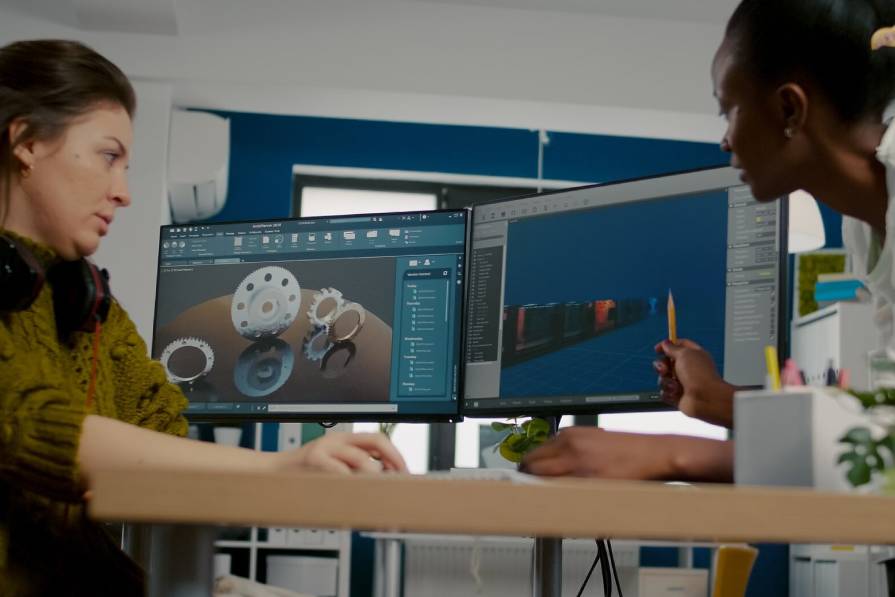In the ever-evolving landscape of technology, the concept of future-proofing systems has become more crucial than ever. As we navigate through the digital era, computer engineering emerges as the cornerstone for building robust, adaptable, and enduring systems. This article delves into the wisdom inherent in computer engineering practices, exploring how they play a pivotal role in future-proofing our technological foundations.
Introduction: The Imperative of Future-Proofing
As we witness rapid advancements in technology, the need to future-proof systems has never been more apparent. Future-proofing involves designing systems that can seamlessly adapt to emerging technologies, evolving user needs, and unforeseen challenges. At the heart of this endeavor lies the discipline of computer engineering, a field that intertwines hardware and software to create intelligent, resilient systems.
1. Foundations of Future-Proofing in Computer Engineering
Computer engineering lays the groundwork for future-proofing by focusing on creating scalable and versatile systems. From developing powerful processors to designing efficient algorithms, every facet of computer engineering contributes to building a foundation that can withstand the tests of time. This section explores key principles and methodologies employed by computer engineers to ensure the longevity and adaptability of systems.
2. The Role of Artificial Intelligence in Future-Proofing
Artificial Intelligence (AI) stands as a beacon of innovation within computer engineering, providing systems with the capacity to learn and evolve. As we delve into the era of machine learning and neural networks, computer engineers harness AI to future-proof systems by enabling them to adapt to changing conditions autonomously. This section elucidates the integration of AI in computer engineering and its implications for future-proofing systems.
3. Security Paradigms: Safeguarding the Future
In the interconnected digital landscape, security is paramount. Computer engineers employ advanced cryptographic techniques, intrusion detection systems, and secure coding practices to fortify systems against evolving cyber threats. This section explores how the wisdom of computer engineering is applied to create robust security paradigms that stand the test of time.
4. Hardware Evolution: From Quantum to Neuromorphic Computing
 The evolution of hardware is a defining aspect of computer engineering’s contribution to future-proofing. Quantum computing, with its potential to revolutionize computation, and neuromorphic computing, inspired by the human brain, exemplify the frontier of hardware innovation.
The evolution of hardware is a defining aspect of computer engineering’s contribution to future-proofing. Quantum computing, with its potential to revolutionize computation, and neuromorphic computing, inspired by the human brain, exemplify the frontier of hardware innovation.
This section delves into how computer engineers embrace these cutting-edge technologies to enhance the capabilities and longevity of systems.
5. Human-Centric Design: Meeting User Needs Today and Tomorrow
Beyond the technical aspects, the wisdom of computer engineering extends to human-centric design. By understanding user behaviors, preferences, and emerging trends, computer engineers create systems that not only meet current needs but also anticipate future requirements. This section explores the role of user experience (UX) design and user interface (UI) principles in future-proofing systems.
Conclusion: Navigating the Digital Frontier with Computer Engineering Wisdom
In conclusion, future-proofing systems is a dynamic and multifaceted challenge that necessitates the wisdom of computer engineering. From establishing strong foundations to integrating AI, ensuring robust security, evolving hardware, and embracing human-centric design, computer engineers play a pivotal role in shaping systems that endure the test of time. As we navigate the digital frontier, the wisdom inherent in computer engineering becomes our guiding light, ensuring that our systems are not just adaptive but truly future-proof.
Frequently Asked Questions for Future-Proofing Systems: The Wisdom of Computer Engineering
Q1: What is future-proofing in the context of computer engineering?
A: Future-proofing in computer engineering refers to designing and implementing systems that can adapt and remain relevant amid technological advancements and changing user needs. It involves employing strategies and technologies that ensure the longevity and adaptability of the systems.
Q2: How does computer engineering contribute to future-proofing systems?
A: Computer engineering lays the groundwork for future-proofing by focusing on scalable and versatile system design. This includes the development of powerful processors, efficient algorithms, and the integration of cutting-edge technologies like artificial intelligence to create intelligent and resilient systems.
Q3: What role does artificial intelligence play in future-proofing systems?
A: Artificial Intelligence (AI) is a key component in future-proofing systems. It enables systems to learn and evolve, adapting to changing conditions autonomously. In the context of computer engineering, AI is harnessed to enhance the adaptability and intelligence of systems.
Q4: How does computer engineering address cybersecurity concerns in future-proofed systems?
A: Computer engineering addresses cybersecurity concerns through advanced cryptographic techniques, intrusion detection systems, and secure coding practices. These measures are implemented to fortify systems against evolving cyber threats, ensuring the security and integrity of future-proofed systems.
Q5: What are the advancements in hardware mentioned in the article, and how do they contribute to future-proofing?
A: The article discusses advancements in hardware, including quantum computing and neuromorphic computing. Quantum computing has the potential to revolutionize computation, while neuromorphic computing, inspired by the human brain, introduces novel approaches. Computer engineers leverage these technologies to enhance system capabilities and contribute to future-proofing.
Q6: How does human-centric design factor into future-proofing systems?
A: Human-centric design in computer engineering involves understanding user behaviors, preferences, and emerging trends. By incorporating user experience (UX) design and user interface (UI) principles, computer engineers create systems that not only meet current needs but also anticipate and adapt to future user requirements.
Q7: Why is adaptability emphasized in the article?
A: Adaptability is crucial in the context of future-proofing systems because technology evolves rapidly. Emphasizing adaptability ensures that systems can seamlessly integrate emerging technologies, respond to changing user expectations, and remain effective and relevant over an extended period.
Q8: Are there specific examples of companies or projects applying the principles of future-proofing discussed in the article?
A: The article provides general insights into the principles of future-proofing in computer engineering. While specific examples may vary, many technology companies and research projects incorporate these principles to develop systems that withstand the test of time and technological evolution.
Q9: How can businesses benefit from implementing future-proofed systems?
A: Implementing future-proofed systems can benefit businesses by reducing the need for frequent system overhauls, enhancing adaptability to market changes, improving cybersecurity resilience, and providing a competitive edge through cutting-edge technologies, ultimately leading to increased efficiency and longevity.
Q10: What steps can individuals take to stay informed about advancements in future-proofing technologies?
A: Individuals can stay informed by following reputable technology news sources, participating in industry events and conferences, engaging with online communities, and exploring educational resources related to computer engineering, artificial intelligence, and emerging technologies.
Also Read: Career in Biomedical Engineering




